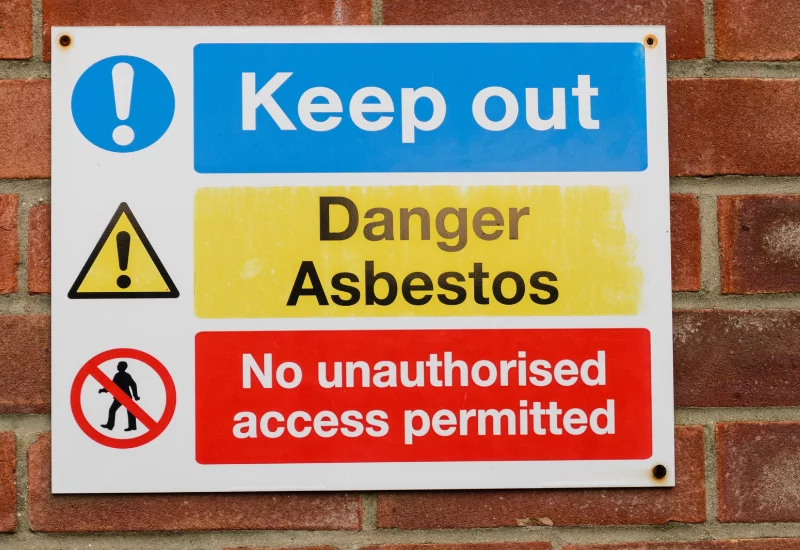- 16 Feb 2022
- •
- 5 min read
What compensation and benefits are available to people with an asbestos related illness?

John Hall, specialist asbestos solicitor at Trethowans, looks at the benefits that are available to people with an asbestos-related illness.
The number of mesothelioma compensation claims is on the rise, as there are around 2,500 asbestos-related cases diagnosed in the UK per year. This is due to the long time it takes for the cancer to develop (which can be more than 20 years). If you or a family member has been diagnosed with mesothelioma you should speak to specialist mesothelioma solicitors as soon as possible to find out if you are able to make a claim, which could be in excess of £1 million.
Asbestos compensation for related illnesses
If you suffer from an asbestos-related illness you can claim asbestos compensation through the courts to help you pay for your care and provide for you and your family financially.
You have to start you claim at court within three years of the date that you know, or should know, that you are suffering from a disability caused by your exposure to asbestos. If you let that three-year period pass it is unlikely that you will be able to claim compensation for your current illness and any more serious illness caused by your exposure to asbestos.
John Hall is a specialist asbestos solicitor with over twenty years’ experience acting on the behalf of victims of asbestos disease, first as a partner with a national trade union law firm and as head of accidents and injuries here at Trethowans.
For further information on claims for asbestos compensation and benefits, please contact John Hall on 023 8082 0526 or get in touch here.
Benefits and asbestos compensation for asbestos-related illnesses
Industrial Injuries Disablement Benefit (IIDB)
If you’ve been diagnosed with an asbestos-related illness, you may be entitled to asbestos compensation and you may also be able to claim Industrial Injuries Disablement Benefit (IIDB). This benefit can be claimed if your condition causes you disability in some way.
IIDB can be paid, even if your asbestos-related illness is non-life threatening. Conditions that are eligible include:
- Pleural thickening
- Asbestosis
- Asbestos related lung cancer
- Mesothelioma
IIDB is paid as a periodic pension (normally weekly or monthly). The amount you receive will depend on the severity of your condition. Mesothelioma is automatically assessed at the maximum amount, currently £182.90 per week (2021 rates, as from 1 April 2021).
You can claim IIDB even if you are claiming compensation through the courts, and it doesn’t matter whether you’re still working or retired.
IIDB is normally backdated by 13 weeks from the date that you make the successful claim.
You may also be able to claim IIDB if you are the dependent of a loved one who has died from an asbestos related disease. A dependant’s claim must be made within twelve months of the death of the sufferer.
IIDB may affect your entitlement to other state benefits, including Income Support, Jobseeker’s Allowance, Pension Credit and Housing Benefit.
Pneumoconiosis etc. (Workers’ Compensation) Act 1979
If an award of Industrial Injuries Disablement Benefit is made, there may also be an entitlement to a lump sum payment under the Pneumoconiosis etc. (Workers’ Compensation) Act 1979 (PWCA).
To qualify for a payment under the PWCA, the following criteria must be met:
- The illness must have been caused by exposure to asbestos within paid employment
- You have been awarded Industrial Injuries Disablement Benefit for one of the listed diseases, which include diffuse mesothelioma and several other asbestos-related diseases such as primary carcinoma of the lung
- You have not brought a court action or received compensation from an employer in respect of the disease
You may also be able to claim a PWCA award if you are the dependent of a loved one who has died from an asbestos related disease. A dependant’s claim must be made within twelve months of the death of the sufferer.
Personal Independence Payment (PIP) Or Attendance Allowance (AA)
The “daily living component” of the Personal Independence Payment (PIP) and the Attendance Allowance (AA) provide a weekly payment to help with your personal care (if you need assistance washing for example).
The PIP is available to those aged under 65 and AA is available to those aged 65 or over.
From 1 April 2021, both the PIP and AA offer £60 or an enhanced rate of £89.60 per week, whether you qualify for the standard or enhanced rate will depend on the results of an assessment.
In addition, the PIP also offers a “mobility component”, which provides £23.70 or an enhanced rate of £62.55 per week. The mobility component is there to help if you need assistance travelling.
If a loved one spends a large amount of time caring for you, they may also be eligible for Carer’s Allowance. This can affect other state benefits, including Income Support, Jobseeker’s Allowance, Pension Credit and Housing Benefit.
Blue Disabled Parking Badge
You may be able to apply to your local council for a Blue Badge. You need to be in receipt of the Personal Independence Payment or Attendance Allowance to qualify for a Blue Badge.
2008 Diffuse Mesothelioma Scheme
The 2008 Diffuse Mesothelioma Scheme was set up to cover those who are not eligible to claim a lump sum payment through the Pneumoconiosis etc. (Workers Compensation) Act 1979.
You may be able to claim through the 2008 Diffuse Mesothelioma Scheme if you were exposed to asbestos outside of employment, as follows:
- You cannot say where the exposure took place
- The exposure was secondary (for example, through washing asbestos from a family member’s clothes at home)
- You were self employed
- The exposure was environmental exposure (caused by you living near to premises where asbestos was manufactured or used)
- The exposure occurred when you were a student at school or university, or a patient in hospital
To make a claim under the Diffuse Mesothelioma Payments 2008 you are required to show that the victim:
- Is not entitled to a payment under the through the Pneumoconiosis etc. (Workers Compensation) Act 1979
- Has not received a payment for the disease from an employer, a civil claim or elsewhere
- Is not entitled to compensation from a Ministry of Defence scheme
Exposure to asbestos must have occurred in the United Kingdom and a claim must be made within twelve months of diagnosis.
Diffuse Mesothelioma Payments Scheme (DMPS)
The Diffuse Mesothelioma Payments Scheme (DMPS) is available to those who are unable to make a compensation claim against an employer (or an employer’s insurer) through the courts.
To make a claim under the DMPS you are required to show that:
- Diffuse mesothelioma was diagnosed on or after 25 July 2012
- Diffuse mesothelioma was caused by employment in the UK
- You have been unable to find an employer responsible for exposing the victim to asbestos, or their insurers
- No prior civil claim has been made against any employer (or their insurers)
- No prior damages or specified payment received for mesothelioma or eligibility for a specified payment
- Your application is made with three years of your diagnosis or onset of symptoms
- You are the dependent of someone who has died from mesothelioma (and they were diagnosed within the last three years).
The DMPS provides £7,000 to cover your legal fees. We will never charge more than £7,000 to progress your DMPS claim.
A DMPS award may affect your entitlement to other state benefits, including Income Support, Jobseeker’s Allowance, Pension Credit and Housing Benefit.
For further information on claims for asbestos compensation and benefits, please contact John Hall on 023 8082 0526 or get in touch here.


